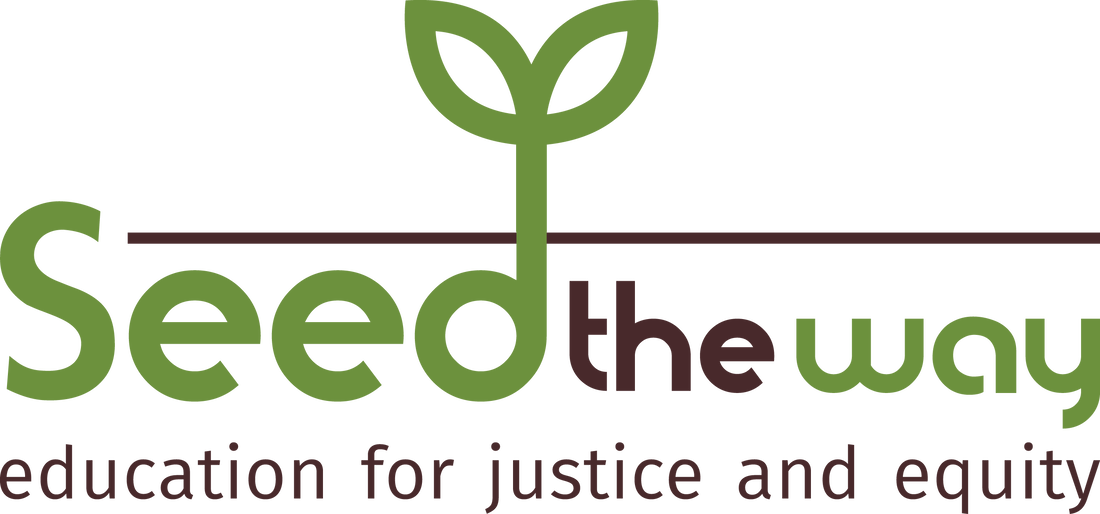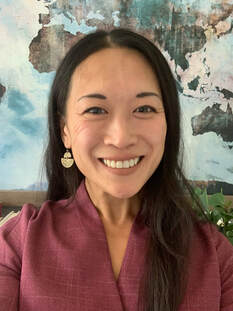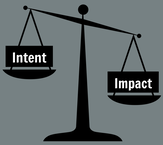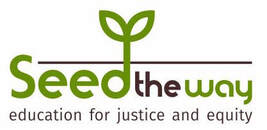Rebecca Eunmi Haslam, Ph.D.Dr. Rebecca Eunmi Haslam founded Seed the Way LLC in 2015 in order to support teachers and educational leaders in their efforts to cultivate and sustain actively anti-bias, antiracist pedagogies, curricula, practices, and learning spaces. Seed the Way is committed to identifying and disrupting patterns and practices that continue to oppress BIPOC and other people marginalized by social inequity. Seed the Way provides in-person and remote services for teachers, school leaders, and educational partners through interactive workshops, facilitated discussions, coaching, and consulting.
Rebecca is an Assistant Professor in the Education Department at Saint Michael's College. Her research is currently focused on school climate and curriculum that supports the mattering and wellbeing of students of the global majority. Prior to SMC, she served Burlington, Vermont's public schools for 14 years as a classroom teacher, curriculum developer, and K-12 equity & inclusion instructional coach. Rebecca was named the 2015 Vermont State Teacher of the Year by the Council of Chief State School Officers(CCSSO), and was the 2018 recipient of the Vermont NEA Human and Civil Rights Award. Since joining Saint Michael's College, she has been instrumental in moving the college forward with several important initiatives including the creation of a new interdisciplinary major in Equity Studies, new courses at the undergraduate and graduate levels focused on antiracism, collective liberation, and critical theory, and the creation of the new Racial Equity and Educational Justice Graduate Certificate Program which includes courses in African American history and culturally sustaining pedagogies through an Indigenous lens. Dr. Haslam was awarded the 2020 Senior Class Appreciation Award for her dedication to mental health and holistic student wellbeing. Seed the Way is focused primarily on training for PreK-12 public school faculty and staff. Because one-time events rarely result in sustainable and systems-level changes, Dr. Haslam does not offer single services. With increased need across the state and country, Seed the Way is prioritizing collaborations with partners who want to take a comprehensive approach to educational equity work. For more information, to request a proposal, or to inquire about rates and availability, please complete this inquiry form or email rebecca@seedtheway.com. |
The SEED Model
|
See
|
Learning to see the water means being willing and able to notice when we are normalizing racism, oppression, and marginalization in our own curricula and praxis (cultural relevance, terminology, representation, historical perspectives, instructional methods), as well as in relationship with others. Instead of accepting social inequity as just the way it is, we need to consider how patterns of dominance and oppression influence our own interpretation of what's 'normal,' and how our biases inform our pedagogical practices and interactions.
|
|
Excavate
|
We all have biases. They start forming when we're young and are informed by messaging we hear from trusted people in our lives, the media, in school curricula, and in literature. When we encounter what we perceive to be difference, our biases serve as the basis for our assumptions and interpretations in ways that might not be aligned with our own stated core values or sense of integrity. Excavating is all about surfacing our biases, being willing to dig them up, and doing the reflective work necessary to recognize when they get in our way.
|
|
Evaluate
|
We each need to constantly evaluate our own integrity gap; in other words, am I showing up the way I want to, with my values in tact? Our own biases will inform our response in ways we might not be aware. We need to consider the tension between intent and impact and be able to discern when 'what I meant' matters a whole lot less than how it landed. As educators, we cannot be silent when someone in our care is experiencing racial abuse (Kendi, 2020) or [micro]aggressions. This comes down to our core values and non-negotiables. Our responses and patterns define the classroom culture: shared values, relational ways of being, implicit messaging about what is important, who matters, who feels a strong sense of school belonging, and what 'normal' means at school.
|
|
Determine
|
Determining how we respond happens in the moment and as much as we want to be "ready," that is rarely the case. Context will always matter, and while there is no one right way to respond when racism, bias, hate, and harm are present, we must always intervene. Each determination helps define school culture and how it feels to be at school. Race Forward calls these choice points; each decision made by each individual influence and cumulatively impact outcomes at the systems level. Careful evaluation now will help us determine our next steps. What are my non-negotiables? What will I tolerate? What warrants my intervention? How are my own biases and defaults informing my interpretations? Whom am I keeping safe? It's harder to do this kind of thinking in what I call those "yikes moments". Sustaining anti-bias, antiracist (ABAR) learning spaces require us to be proactive, collaborative, and accountable to each other.
|






